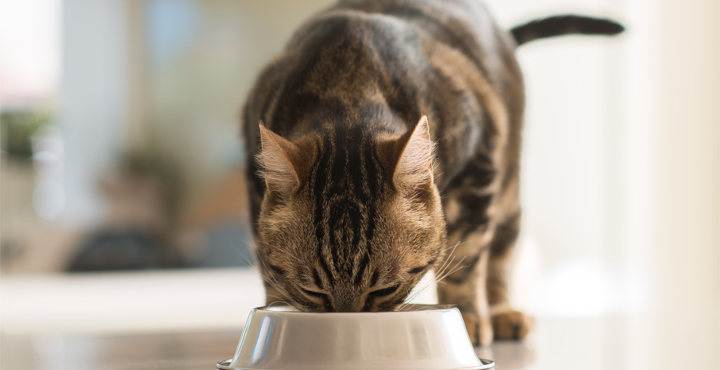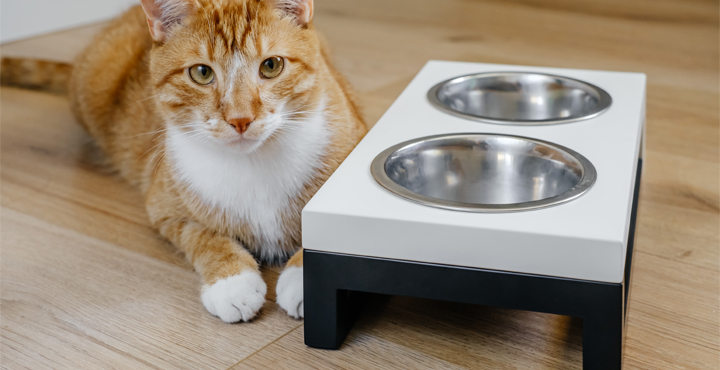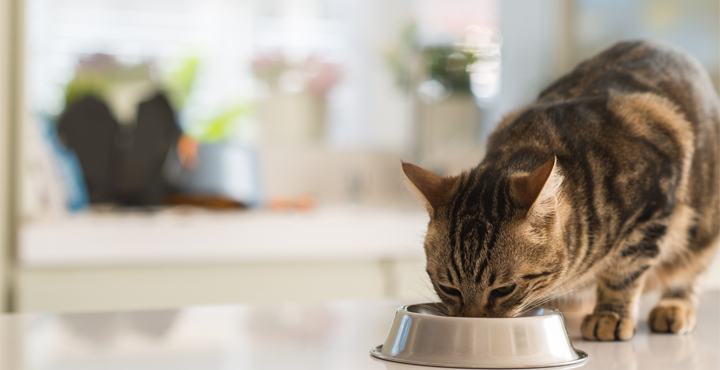
Cats are resilient animals, and we often hear of cats who were believed to be lost returning home after days, or even weeks, having seemingly survived on their own the whole time. Alternatively, some cats may suddenly decide to turn their noses up at their usual pet food, refusing to eat it each time you put it down for them. You may therefore be wondering how long cats can survive without food. In this article, Whiskas investigates how long a cat can go without food.
How long can cats go without food?
The average cat can technically survive for one to two weeks without food if they have a water supply. However, without protein, it may be more like three to four days, even if they have enough water. With no water or food, it is unlikely that a cat would survive longer than three days. It is important to emphasise that when it comes to cat health, a cat that has had no food for as little as two days can become malnourished and unwell and may even need urgent veterinary care. All cats need regular food and a supply of fresh water to be happy and healthy.
You should not assume that, if necessary, your cat will be able to fend for themselves and catch their own food. Although many domestic cats can successfully hunt and catch mice, birds, squirrels and other small animals, not all cats have the skills to find their own food. Domestic cats often become accustomed to being fed at certain times, and if this doesn’t happen, they may not seek to find an alternative food source.
Why has my cat stopped eating?
Cat behaviour is not always understood; however, if your cat has recently stopped eating their food, there could be a few different reasons why, including:
- Illness
Cats often stop eating if they are unwell. If your cat seems off-colour and is vomiting, lethargic or has a fever, seek veterinary help immediately. - Dental problems
When you have a sore tooth or inflamed gums, eating can be painful. If your cat seems reluctant to eat, only chews on one side of their mouth, or won’t let you touch their head or mouth, they might need a dental check-up. - Upset Stomach
If your cat has eaten something that hasn’t agreed with them, they may not want to eat for a while until they have recovered. If your cat is vomiting or has diarrhoea, this could be a sign that they have ingested something they shouldn’t have. If the vomiting persists and their appetite does not return to normal after a couple of days, book a vet appointment to make sure there isn’t a more serious issue. - Medication
Sometimes medication or feline vaccinations can cause cats to lose their appetite. If your cat has been given medication, check any side effects with the vet to make sure. - Stress
Stressful life events can cause cats to stop eating, including moving house, new additions to the household, or changes in routine. - Boredom/Fussiness
Cats can be fickle with their food, and sometimes your cat may decide they don’t like a particular brand or type of food anymore. It’s also normal for a cat to refuse a meal or two every now and again simply because they don’t feel like it.
What happens if a cat doesn’t eat?
Cats need nutrients to live, which they get from food and water. If cats stop eating, or if they can’t find food with enough protein, this can cause hepatic lipidosis, a liver condition that can be fatal if left untreated. Cats’ livers cannot support their bodies in the same way that dogs’ and humans’ can, so this process can happen very quickly. With continued starvation, the cat’s organs will also start to shut down.
How can I get my cat to eat?
If your cat has lost their appetite as a side effect of medication, you may just need to be patient. Let them take their time with their food and reward them for eating. If you believe your cat is stressed, try making their eating environment as peaceful as possible. Use familiar bowls and food to encourage them to tuck in and keep other pets or children away from them while they are eating.
If you’ve ruled out underlying health conditions or stress, your cat may just need a change in diet to start eating again. Gradually introduce small portions of the new food to their old food over the duration of a week until they are eating full portions. Consider giving your cat small portions of chicken or tuna to encourage them, but always make sure this is prepared correctly and contains no small bones, oils, additives or flavourings that could make your cat sick.
If your cat still refuses to eat, you have noticed that they are losing weight, or you are concerned about them in any way, always take them to see a vet.
A cat that has had no food for two dys can become malnourished and unwell.
If your cat has stopped eating their food, it could be dangerous for their health. Read on to learn more. 2














